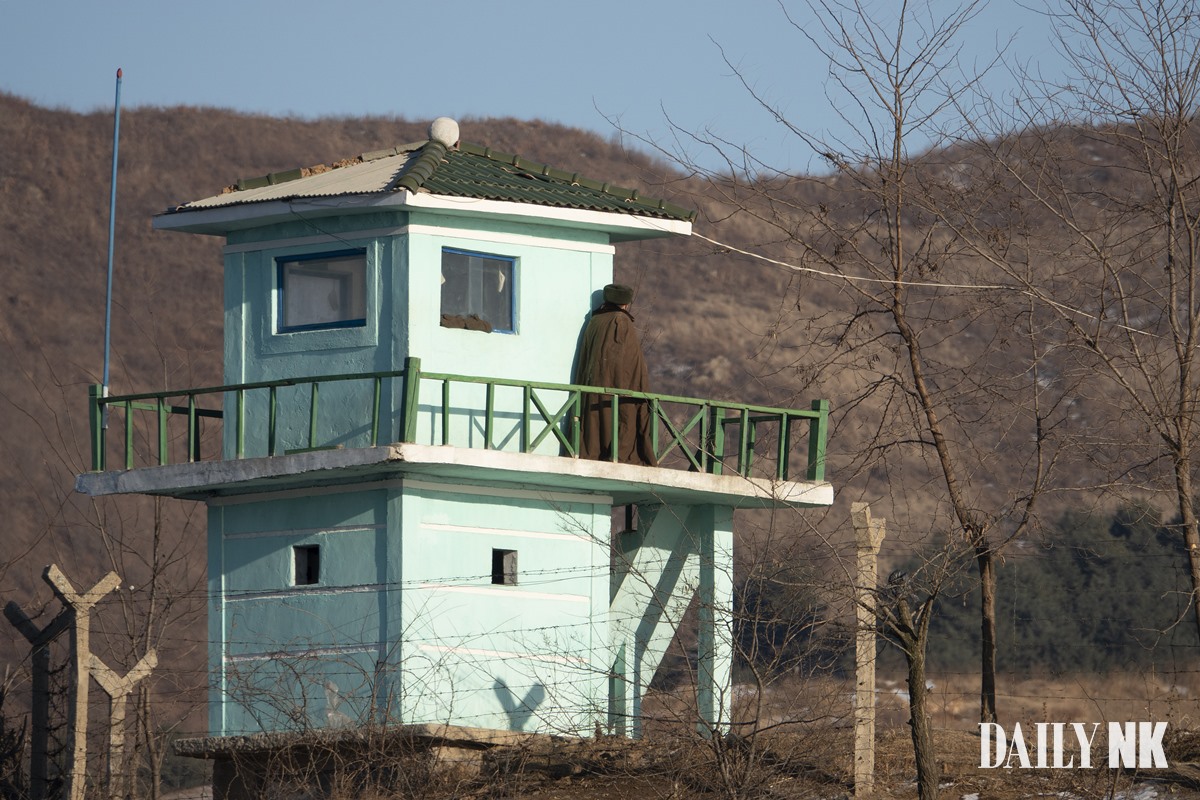With cold weather hindering progress in the construction of a concrete wall along the Sino-North Korean border, North Korean authorities are reportedly hanging empty bottles and cans on a recently erected wire mesh fence as a temporary expediency to prevent defections.
A Daily NK source in Yanggang Province said Thursday that the authorities erected a wire mesh fence along the entire border early last month. By mid-month, they had finished hanging empty bottles and cans on the fence. He said the builders erected the temporary fence since people could try to defect while work on the concrete wall slows as the ground freezes due to the cold.
According to the source, North Korea initially planned to finish construction of the border wall and high voltage wires by the end of this year. That is now impossible with the weather turning cold and the authorities unable to pump resources into construction as they prepare for a sweeping end-of-the-year review this year – the first year of the state’s five-year economic development plan.
The source said Yanggang Province responded by getting approval from the leadership to erect the temporary wire mesh fence with empty bottles and cans along the border and to prepare this winter for restarting construction of the wall from the middle of March 2022.
In fact, the province reportedly erected the wire fence along its section of the border in just three days after approval came down from the leadership. Provincial authorities then collected empty bottles and cans from locals, hanging two each along every meter of the fence.
The source said that each construction unit must prepare to restart construction work in their sections by March – when the frozen land thaws and construction can restart in earnest – by digging out sections 180 centimeters deep and 80 centimeters wide.
He said to dig frozen ground during the winter you need to thaw it little by little, so units are running around preparing firewood and digging as much as they can before it gets even colder.

Meanwhile, the authorities are facing issues keeping the engineering units deployed to the border supplied with necessities given that their deployment to the border has been longer than expected.
The source said the engineering bureau — which reportedly conducted zero preparations for winter — has asked soldiers from rich families to go on leave and come back with coal, firewood, rice and other food. He said the engineering bureau was relying completely on those soldiers for its winter preparations.
Meanwhile, working-level officials are reportedly losing sleep over how to get high voltage currents to the high voltage wires they are installing along the border.
A source in Chagang Province said the province and the military have provided all the transformers, but the concern on the ground is that simply installing transformers will not get electricity into the fence. He said promising to provide electricity to the border is easy, but because this is not really possible, the core problem now is how to provide high voltage juice on a 24-hour basis.
With North Korea facing chronic energy shortages, people on the ground believe there will be woefully insufficient electricity for the fence if Pyongyang and provincial military industries receive priority energy.
The source said the provincial party and people’s committees, border guard and engineering bureau put their heads together and came up with a scheme to divide the border region into different sections and send power to a different section every day. Under this plan, which section is receiving power on a given day would be wrapped under intense secrecy.
The source said officials who came up with the plan think that, due to this secrecy, locals will fear the fence even more since they do not know which section will be electrified.
However, nobody knows whether the Central Committee will approve the plan, he added.


















